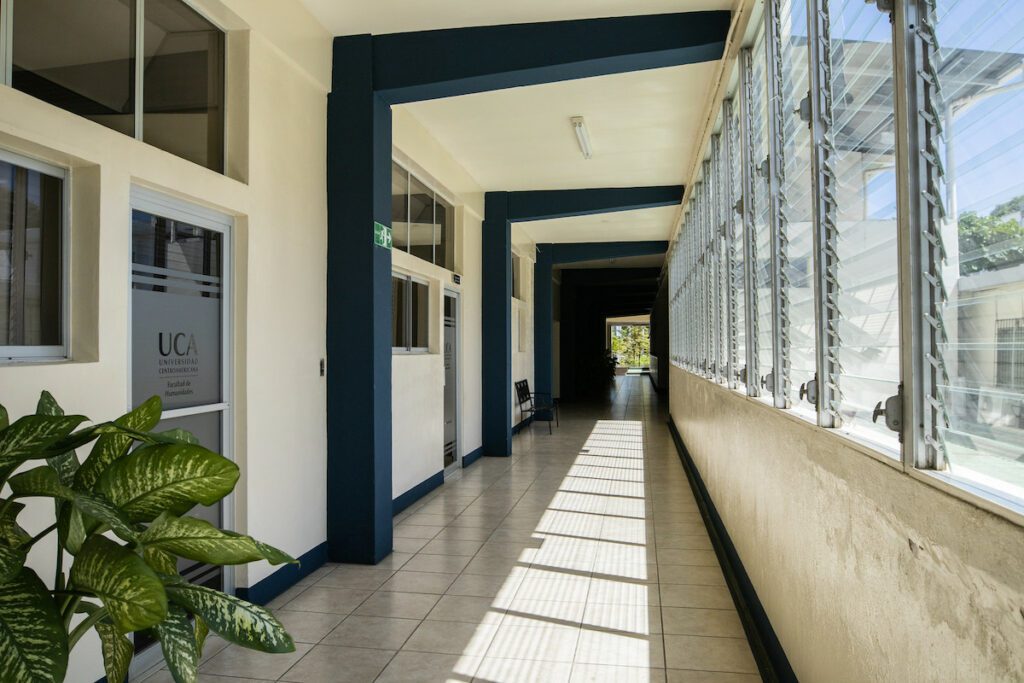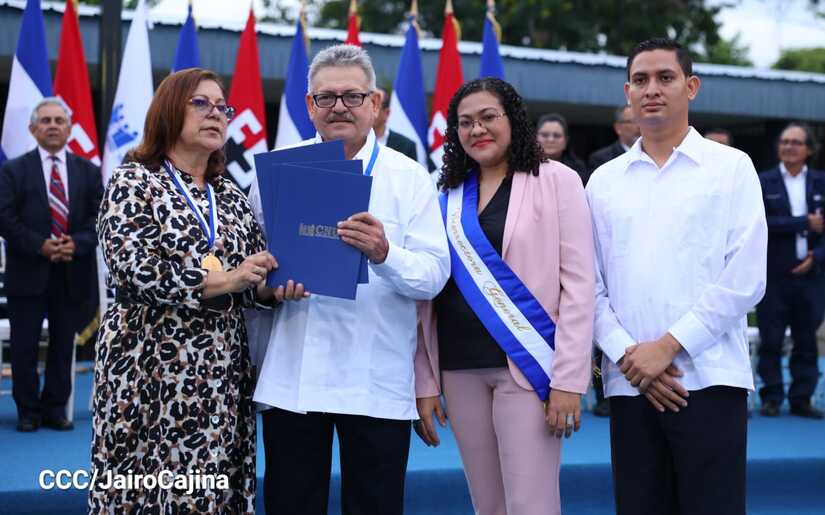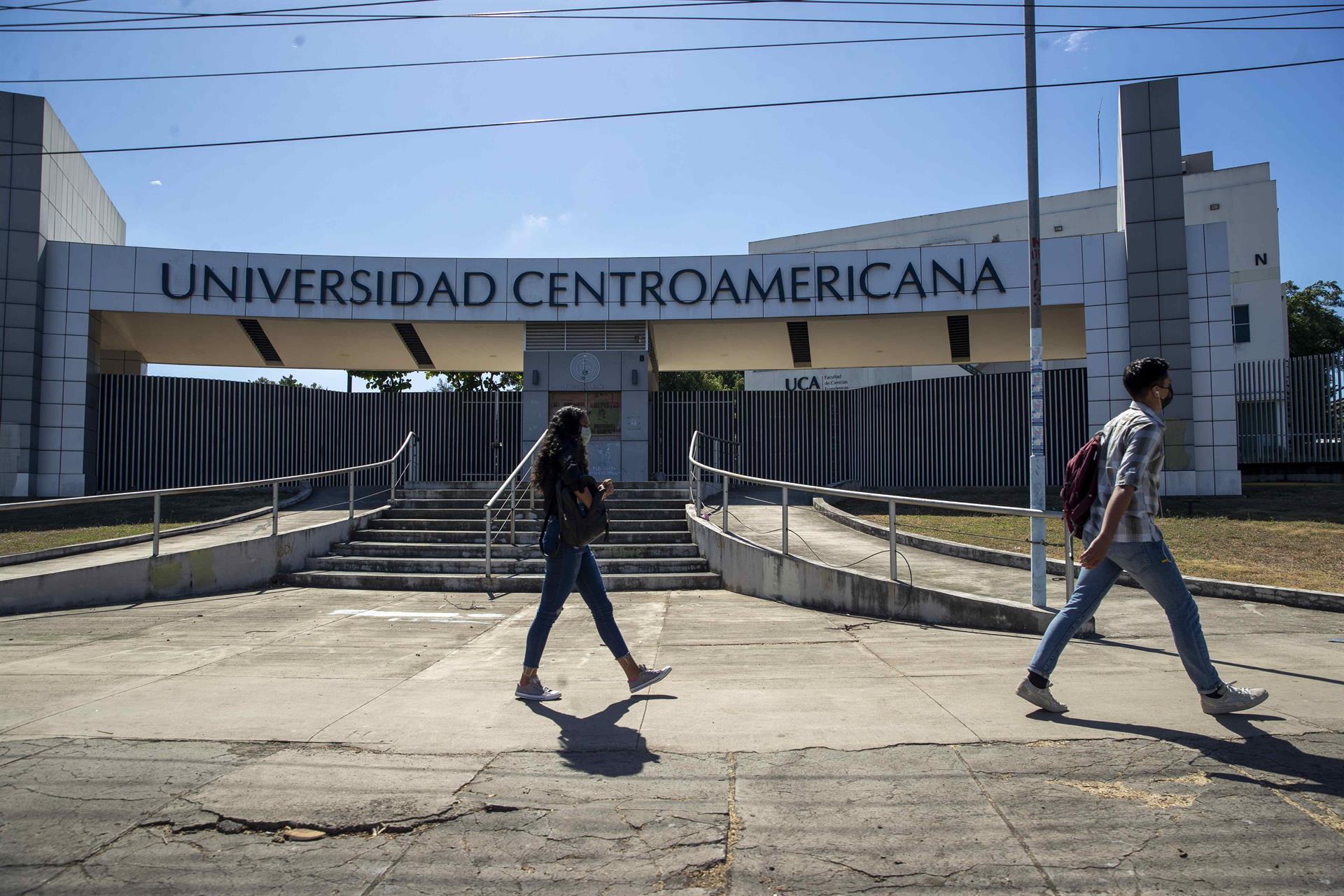Classes at confiscated Central American University (UCA, now called Casimiro Sotelo) have still not begun, despite the fact that its occupation by the authorities appointed by the Ortega government happened a little more than two months ago. And there are no signs that this situation will change in the short term.
Some former UCA students, such as Estefania – whose identity has been kept anonymous – are still waiting to resume their studies at the university campus.
The 23-year-old student was about to start the second semester of the third year of her degree when she received the news that UCA would be taken over by the regime of Daniel Ortega and Rosario Murillo, in a brutal attack against higher education in Nicaragua.
Students look for options outside the country
“I have looked for options, both at the universities in Guatemala and El Salvador, but we are still waiting. Now is when I think of going abroad the most, either to study or to look for a job. The possibilities of being a professional here are running out,” she said via phone call from Nicaragua.
After the news of the confiscation, she decided to continue her studies at Camilo Sotelo, despite the certainty that the level of education would drop and that there would be constant indoctrination. However, the center administered by the dictatorship has not started its administrative work. Nor have its authorities announced registration.
Regime underestimated the management of UCA
For Elvira Cuadra, sociologist and director of the Center for Transdisciplinary Studies of Central America (Cetcam), which released a newsletter on the higher education crisis in Nicaragua, the university’s lack of operations exposes a conclusive answer.
“They underestimated the significance of taking over a university with the diversity of degrees, the number of students that UCA has had to date, and what these administrative processes mean,” she said.

In the end, according to Cuadra, everything also lies in the type of administration that UCA had, which “functioned in a different way to the hierarchical control that they have imposed on public universities”.
“It combines both the authorities inefficiency, with budget issues, because indeed the regime does not have the capacity to sustain all the programs and what that supposes in terms of campus operation”, said Cuadra.
On August 16, 2023, DIVERGENTES reported that the Managua court issued an official notice accusing UCA of terrorism, as well as the confiscation of its material and economic assets. All this, after ordering the freezing of its properties and bank accounts.
In a matter of days, the dictatorship confiscated the university’s facilities, a process that culminated on August 18 with a party event attended by the authorities of the National Council of Universities (CNU), the governing body of higher education controlled by the Sandinistas.
“Collective depression” among students

Weeks before, Estefania‘s parents were preparing to pay a monthly fee of 120 dollars -about 4392.54 córdobas at the official exchange rate- for the beginning of the second semester. However, rumors of what appeared to be an imminent takeover by the dictatorship began to spread. “A collective depression began to set in, we spent the whole process in uncertainty,” recalls the student, now unable to study.
With an enrollment of some 5,000 students, UCA was the only university in the country administered by the Jesuits that enjoyed academic independence, despite repeated attempts by the regime to economically suffocate it.
The main one was the reduction of its budget, from 255.91 million córdobas in 2017, to 100 million in 2021.
As a final attack, on March 31, the dictatorship approved a reform to Law 89, Law of Autonomy of Higher Education Institutions, with which it removed UCA from the National Council of Universities (CNU) and, in this way, stripped it of the funds it received from the constitutional budget of 6%. In this long road of harassment, suffocation and intimidation, the main victims were the students who aspired to receive a scholarship.
Times of “academic obscurantism”
“The effects of that level of control of the universities we still can’t even measure. It is really a time of obscurantism, because we have seen how other higher educational centers are becoming centers of indoctrination, where the level of education, the level of the programs has significantly decreased and the type of professionals that are coming out of there are very low quality professionals,” Cuadra remarked.
Cetcam warned of this obscurantism in its informative newsletter. “The transcendence of these attacks is enormous and their consequences have not even been foreseen by the dictatorship itself. They are a direct attack on fundamental civil liberties, among them freedom of thought, freedom of expression and religious freedom,” warned the organization.
For Cuadra, the effects of this dark period can be seen in “a human resource with low technical and professional standards that contribute neither to the economic and social development of the country, nor to the welfare of these professionals and their future families”.





